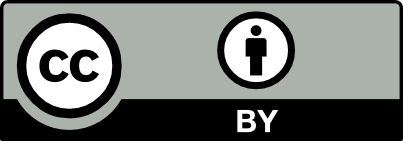Management system of waste electrical and electronic equipment. System dynamics approach
DOI:
https://doi.org/10.18046/syt.v11i24.1501Keywords:
WEEE, EEE, system dynamics, integrated management.Abstract
The world is experimenting a growth of waste electrical and electronic equipment, WEEE, as a result of continuous technological progress, increasingly affordable prices and consumer behavior. This article presents a model that simulates the current situation of Bogotá's waste management system in the case of TV sets. This model includes variables that describe their influences and issues, and actors involved in the WEEE chain from televisions. The aim of this study is to determine the behavior of the system taking into account policies and activities of the actors involved, which are analyzed under different scenarios.
References
Blaser, F. 2009. Gestión de residuos electrónicos en Colombia. diagnóstico de electrodomésticos y de aparatos electrónicos de consumo. Bogotá D.C., Colombia: EMPA, ANDI, CNPML
Bollinger, A-L. (2010). Growing cradle-to-cradle metal flow systems. An application of agent-based modeling and system dynamics to the study of global flows of metals in mobile phones [Tesis de maestría]. Leiden University: Holanda
Chancerel, P., Meskers, C.E.M., Hageluken, C., & Rotter, V.S. (2009). Assessment of precious metal flows during preprocessing of waste electrical and electronic equipment. Journal of Industrial Ecology, 13(5), 791-810
Computadores para educar [CPE] (2012, Abr. 10). ¿Qué es CPE? [en línea] Disponible en http://www.computadoresparaeducar.gov.co/website/es/index.php?option=com_content&task=view&id=44&Itemid=139
European Parliament & Council of the European Union [UE] (2003, Feb. 13). Directive 2002/96/EC of the European Parliament and of the Council of 27 January 2003 on waste electrical and electronic equipment (WEEE). Official Journal of the European Union, L 37/24. Disponible en http://eur-lex.europa.eu/LexUriServ/LexUriServ.do?uri=OJ:L:2003:037:0024:0038:en:PDF
Gallo, M. Romano E, & Santillo L. (2011). A methodological approach to manage WEEE recovery systems in push/pull logic. En Proceedings of the 2011 Winter Simulation Conference, (pp. 1035-1047). Piscataway, NJ: IEEE.
Georgiadis, P. & Besiou, M. (2008). The importance of feedback loops designing environmental policies for sustainable development. En Proceedings of the 26th
International Conference of the System Dynamics Society, July 20 – 24, 2008. Athens, Greece [en línea]. Recuperado de http://www.systemdynamics.org/conferences/2008/proceed/papers/GEORG312.pdf
Georgiadis, P. & Besiou, M. (2009). Environmental Strategies for Electrical and Electronic Equipment Supply Chains: Which to Choose?. Sustainability, 1, 722-733
Glöser, S. (2012). Quantitative analysis of the criticality of mineral and metallic raw materials [Poster en International Conference of the System Dynamics Society 13th PhD Colloquium of the Student Chapter July 22nd 2012 St. Gallen Switzerland]. Recuperado de http://student.systemdynamics.org/wp/wp-content/ulf/colloquia/2012-proceedings/2012_gloeser_poster.pdf
Gómez, L. (2012, abr. 12). UAESP. Bogotá solo recicla el 0,5 por ciento del material potencialmente reutilizable [en línea]. Recuperado de http://www.eltiempo.com/archivo/documento/CMS-7582527
Ministerio de Ambiente (2011, nov. 3). Gestión de Residuos Posconsumo [en línea]. Disponible en http://www.minambiente.gov.co//contenido/contenido.aspx?conID=7769&catID=1342
Ministerio de Ambiente Vivienda y Desarrollo Territorial (2010, agosto 10). Resolución 1512 de 2010. Diario Oficial No. 47797. Bogotá, Colombia: Imprenta Nacional
Red de Seguimiento, Evaluación y Sistematización en América Latina y el Caribe [RELAC]. (2011). Lineamientos para la gestión de los RAEE en Latinoamérica. [en línea]. Recuperado de http://www.residuoselectronicos.net/documents/110410-documento-lineamientos-para-la-gestion-de-raee-en-la-mesa-de-trabajo-publico-privada.pdf
Rodríguez, L.A., Estupiñán, E., Boons, F. (2010). Dealing with electrical and electronic equipment waste in Colombia. The case of TV sets. 3Rs and environmentally sound Management of wastes for achieving sustainable cities of the journal regional development dialogue. RDD, 31(2), 103-121
Unites Nations Environment Programme [UNEP] (2007). e-waste. Volume inventory assessment manual. Nairobi, Kenya: UNEP. Disponible en http://www.unep.or.jp/ietc/Publications/spc/EWasteManual_Vol1.pdf
Downloads
Published
Issue
Section
License
This journal is licensed under the terms of the CC BY 4.0 licence (https://creativecommons.org/licenses/by/4.0/legalcode).


